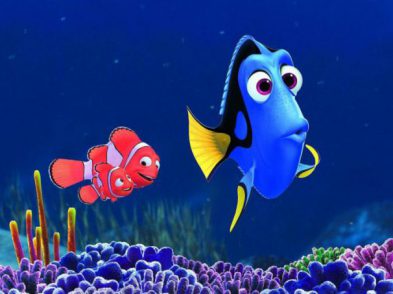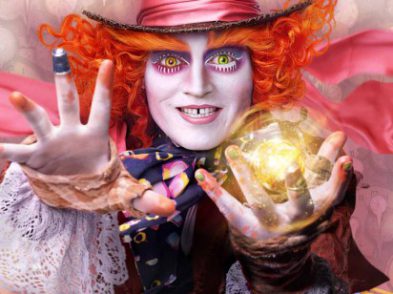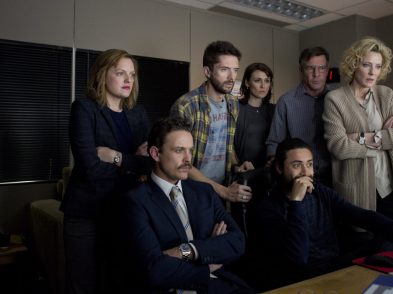Fifty days of cinema, 150 screenings, nine separate film festivals and
seven special events: the fifth 50 Days of International Cinema in Florence,
running from October 20 to December 9, promises to be an exciting
mega-festival.
Featuring a wide range of cinema-some in English, some in original
languages with English subtitles-50 Days of International Cinema showcases
talents old and new on the international scene, with contributions from France,
Spain, Denmark, Finland, Switzerland, India, Iran, Iraq, Uganda, Congo,
Morocco, Portugal, Italy, Corsica, China, Sweden, Germany, the USA, Russia,
Poland and Kenya.
Una Finestra sul Nord (A Window to the North; www.firenzensuomiseura.it) features two
Finnish films that have appeal for the family, and the related Intercity
Festival Helsinki focuses on the work of Aki Kaurismäki, screening six of his
films over two days. Other films of note are Dome Karukoski’s comedy Napapiirin
sankarit (‘Lapland Odyssey’/‘Gli eroi del circolo polare artico’) and Salla – Selling
the Silence, Markku Tuurma’s documentary about unemployment in Lapland. There is
also a screening of Mika Kaurismäki’s documentary Mama Africa, about Miriam
Makeba.
Highlights of the Immagini e Suoni dal Mondo (Images and Sounds from the
World; www.multiculti.it) ethnomusic
festival are documentaries from Iran about traditional music and dance, a
documentary, The
Extraordinary Lesson, about the art of Ravi Shankar, and other films
featuring the music of Jamaica, India, Uganda, and China. Requiem for a
Dying Planet is billed as a ‘cine concerto’: a collaboration between the Dutch
cellist Ernest Reijseger and Werner Herzog, using the music from Herzog’s films
with contributions from a Senegalese vocalist and a Sardinian a cappella choir
to produce a unique fusion of sounds and images.
The International Women’s Festival (www.laboratorioimmaginedonna.it) not only
sends a message of hope in the confusing and turbulent times mirrored in cinema
but also encourages reflection and offers solutions with models of production
both daring and persuasive, not exclusively by women (see box). Robin Hessman’s
documentary My
Perestroika, about coming of age (and beyond) in changing Soviet Russia, is one
such film.
Another is John Turturro’s musical film Passione, featuring the
voice of the Portuguese singer Misia and a spotlight on Kenyan women.
The Festival dei Popoli (International Documentary Film Festival; www.festivaldeipopoli.org)
declares, ‘The new territories of the cinema of the real, its research, transversality
and experimentation, are the locus of enquiry for exploring the limits of the
documentary and its contaminations with other genres.’ The International
Documentary Film Festival is a laboratory, paying particular attention to young
filmmakers and the most innovative examples of the documentary world. The
Catalan director Isaki Lacuesta gets a retrospective (his film La noche que no
acaba is an homage to Ava Gardner and her love for Spain). A selection of
films, grouped as Panorama, focuses on Italian documentaries.
Lo Schermo dell’Arte (Contemporary Arts on Screen Festival; www.schermodellarte.org) comprises
three subgroups: Sguardi (Glimpses) an international programme of recent films
documenting the contemporary arts; Cinema d’artista (Artist Cinema), films by
artists using the medium to explore their own ideas; and Festival Talks, a
programme of lectures and interactive events with artists and filmmakers.
Varied (and challenging) films mark this line-up, and a highlight this year is
Talk Show, an installation by the celebrated video artist Omer Fast.
The Florence Queer Festival (www.florencequeerfestival.it), now in its
ninth year, features an array of work by and about the LGBTI community.
Highlights this year include two premiering documentaries (Sonia Herman Dolz’s Yo soy
asi, focused on La Bodega Bohemia, Barcelona’s famous drag queen cabaret,
which asks what happens to the performers when the stage is no more; and Zhao
Ling’s Zai
Yi Qi -Together, shown at the Berlinale, a touching docu-drama revealing the
devastating marginalisation of AIDS sufferers in China); a selection of Swedish
LGBTI films; and a retrospective of the German director and queer cinema
pioneer Werner Schroeter, including a documentary, Mondo Lux, by Elfi
Mikesch about Schroeter’s work.
The River to River Florence Indian Film Festival, which began in 2001,
is the first festival in the world completely dedicated to films by Indians and
about India. This year River to River features a retrospective of the work of
the Nobel Prize winner Rabindranath Tagore on the occasion of the 150th
anniversary of his birth (for details, see www.rivertoriver.it).
Other events during 50 Days of Cinema include three films from Africa
presented by the Njinda Mbande Angolan Association, an Italian documentary film
festival, and the NICE award ceremony for the best Italo-American film (www.nicefestival.org), curated by
famed New York documentary maker Anton Evangelista.







